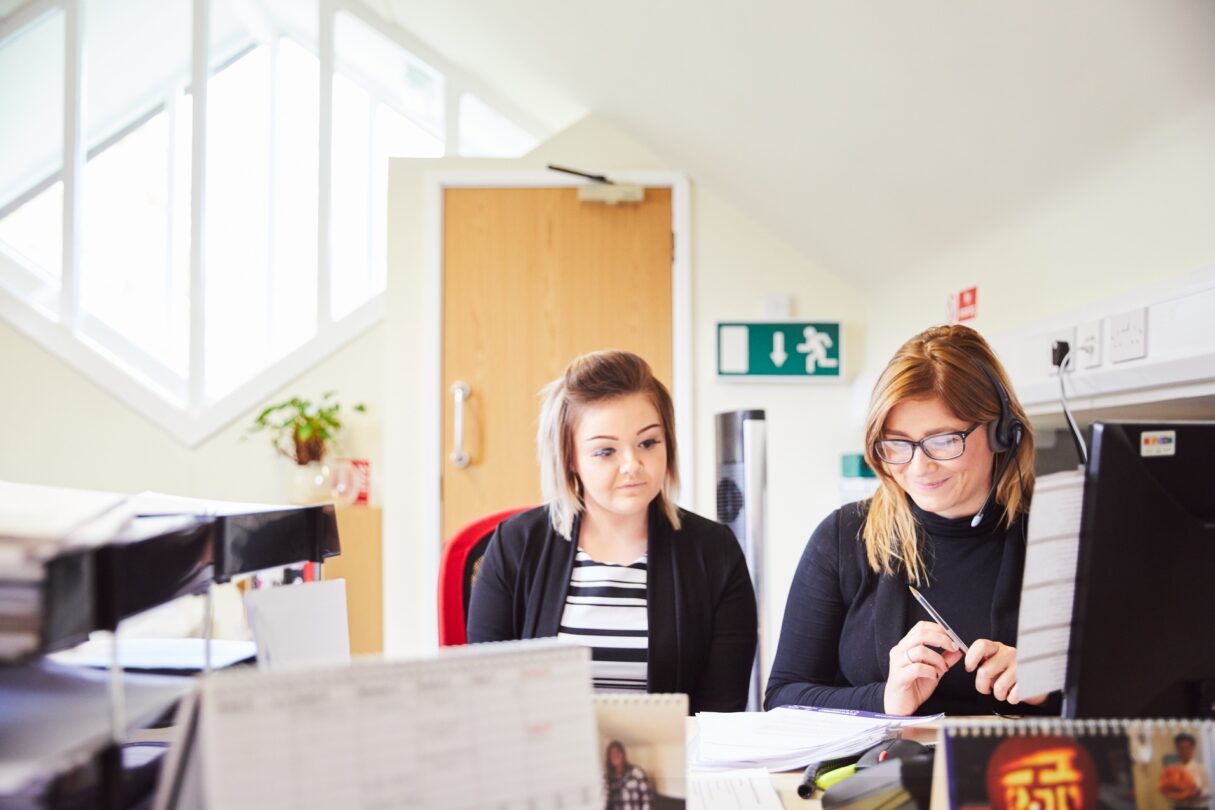Need expert support? 10 questions for small business owners to ask an accountant
Not sure what questions to ask an accountant to get the most help with your business? This list will ensure you get the best advice possible.

Would you like to utilise your accountant better, but not sure how? Or are you starting a business and need to work with one for the first time?
Knowing the right questions to ask an accountant is going to help you run your business more effectively. This will also help you build a rewarding relationship with them over and above filing an annual tax return.
Don’t miss out on gaining their valuable business expertise.
Having regular, open discussions with your accountant will lead to good decision-making and ultimately faster business growth.
But without accounting experience, it’s hard to know what the right questions to ask are.
That’s why we’ve created this list of 10 questions for you, with a breakdown of why you should be asking them.
Here’s what we cover:
1. How should I structure my business?
2. What are my tax obligations?
4. How can I improve my cash flow?
5. What business expenses can I deduct?
6. What upcoming legislation do I need to be aware of?
7. How should I prepare for the tax year-end?
8. What records do I need to keep?
9. How can you help me grow my business?
10. What are some considerations I should consult with you about on an ongoing basis?
Final thoughts on questions to ask an accountant
1. How should I structure my business?
Deciding whether to set yourself up as a sole trader, a limited company or a partnership is one of the first steps you will need to take when starting your business.
There are advantages and disadvantages for each and your accountant will be able to step you through all of these to help you make the best decision.
They can also assist in any document filing necessary to set up your business structure.
2. What are my tax obligations?
Business taxes can be daunting when you’re new to running your own business.
You’ll experience a big learning curve in your first year of operating.
You may be wondering:
- How much money do I need to set aside to pay my tax?
- When will I need to start paying tax?
- Which income taxes apply to my business?
Give yourself peace of mind that you won’t run into any surprises by talking through your tax obligations with your accountant, and you’ll be well-prepared for your first tax year (and subsequent ones too).
3. Should I register for VAT?
Your business needs to register for goods and services tax, VAT, if your annual VAT taxable turnover is above a certain threshold (currently £85,000 per year).
But if you’re below this threshold you also have the option to register your business voluntarily. Your accountant can explain whether there are advantages for you in doing this, and what your obligations are if you do register.
They’ll also inform you about Making Tax Digital and what that means for you from April 2022 if you choose to register for VAT but your business is under the VAT threshold.
If you do register, your accountant can also advise you on the right accounting software for small business, which can make complying with MTD more straightforward.
4. How can I improve my cash flow?
Cash flow is an issue many small business owners face.
Knowing when money is coming into your business and when it’s going out is crucial to ensuring you have a sustainable business model.
One way your accountant can help is to create a detailed cash flow forecast, which you can track on a monthly basis. This would help you spot cash flow issues in advance and provide you with the time to take action to prevent any business disruptions.
Keir Wright-Whyte, managing director at Accounts and Legal, says: “A common mistake many businesses make is addressing their cash flow challenges too late. The danger? Failing to act in a timely manner can lead to financial difficulties.”
5. What business expenses can I deduct?
Depending on the type of business and expenditure you have, you may be able to deduct certain business expenses and reduce your tax bill. These could include:
- Business use of car
- Business travel
- Home office
- Employee expenses
- Charitable contributions
Check with your accountant which deductions your business is eligible for.
They can explain the specific set of rules you must follow and discuss any complexities created by your circumstances. For example, the effect on your home office claim if your home is jointly owned.
Your accountant may also be able to provide you with calculators or templates to easily record and keep track of your business expenses.
It’s much easier to stay on top of this throughout the year than scrambling to find receipts as your tax deadline is approaching.
6. What upcoming legislation do I need to be aware of?
Your business can be greatly impacted by changing tax obligations and regulations.
Examples of this include Making Tax Digital for VAT (which applies to businesses over the VAT threshold now and, as highlighted above, will apply to voluntary VAT businesses from April 2022) and MTD for Income Tax, which comes into play from April 2024.
Many of these changing obligations and regulations will be industry-specific.
As a business owner, it is a lot of additional work to keep across these changes and their corresponding deadlines. So ask your accountant to keep you informed, as they need to be up to date with new legislation.
If you’re looking for an accountant, you’ll want to make sure you choose one who specialises in small business and is familiar with your industry.
Small businesses face unique challenges and legislation, so an accountant with a solid client base of similar businesses will be better to advise you.
Your accountant should also keep you up to date with any financial support available to you and be able to assist you in applying.
For example, during the pandemic, the UK government launched several financial support schemes for business owners.
A study by Unbiased found that businesses that didn’t have an accountant were much less likely to take advantage of these, with 36% using none of them.
If your accountant isn’t well-versed in your industry you may want to consider taking a look at your options, as there could be missed opportunities.
Anam Rehman, from Clear House Accountants, says: “Using expert analytics, forecasting and presentation skills, a competitive accountant will help you visualise major issues the business faces due to economic uncertainties, trend changes and new regulations that might be in the pipeline.
“These should be identified by them using regular health checks and through financial and economic evaluations of your business compared with industry benchmarks.”
7. How should I prepare for the tax year-end?
Your accountant will calculate and submit your required annual accounts and tax returns on your behalf.
In order to make your tax return filing as painless as possible for both you and your accountant, ask what information you can gather ahead of time.
It’s also a good idea to know what format is the most helpful to provide your information in. The more organised your information is, the less time it will take for your accountant to complete the work.
8. What records do I need to keep?
“By working with an accountant regularly, you will develop good financial habits which will save you time and money when you submit accounts or have an audit,” says Watson Buckle Chartered Accountants.
You need to find out from your accountant which records you need to file away for safekeeping. It’s a good idea to keep these handy in case you get audited and need to provide backup.
Some examples of these include:
- Bank statements
- Contracts
- Insurance documents
- Payroll records.
Keep in mind that you need to keep different types of records, such as receipts, for a certain length of time as required by HMRC for tax purposes.
Your accountant will be able to tell you how long you need to keep each type of record, and if you need to keep them in paper form or can save them as electronic files.
Using cloud accounting software and cloud payroll software is really useful for keeping your records. Your accountant will appreciate it too.
In addition, if they’re using the same software, you can work together to stay on top of the numbers, your records and more.
9. How can you help me grow my business?
Once you’re comfortable with your business’s performance, the next step to consider is expanding and upscaling.
There are many different ways to achieve growth, and having an experienced accountant to assist you will make these decisions a lot simpler.
Your accountant can also help you identify the financial issues that may prohibit quick growth, such as unprofitable products or services.
If you are looking for investment to grow, your accountant will also provide important support.
Nick Green, financial journalist for Unbiased, says; “Securing finance from a bank or other source is a major bridge to cross. Lenders and investors want to know they’ll get a return on their money.
“Your accountant will prove vital in presenting a strong financial case to the relevant stakeholders.”
10. What are some considerations I should consult with you about on an ongoing basis?
To develop a valuable relationship with your accountant, you need to be consulting with them more often than just once a year. Asking this question will help you understand which issues you can approach with them that come up regularly in your business.
There are many business decisions that they’ll have useful insight into, such as whether to buy or rent an office space, hire a full-time employee or a contractor, and whether to lease or rent equipment.
These choices will have serious ramifications for your business so it’s worth getting them right the first time.
Final thoughts on questions to ask an accountant
As a business owner, most of your decisions will have a financial element to them. So you should get into the habit of discussing them with an accountant first.
Asking your accountant these questions is going to facilitate a stronger relationship so you can utilise their expertise to help your business thrive.
Editor’s note: MTD for Income Tax has been postponed until April 2024. This article (first published in September 2021) has been updated to reflect that.
7 ways to take control of your business
Want to know how you can boss it at your business? Read this guide for top tips to help you master your business admin and truly take control.







Ask the author a question or share your advice